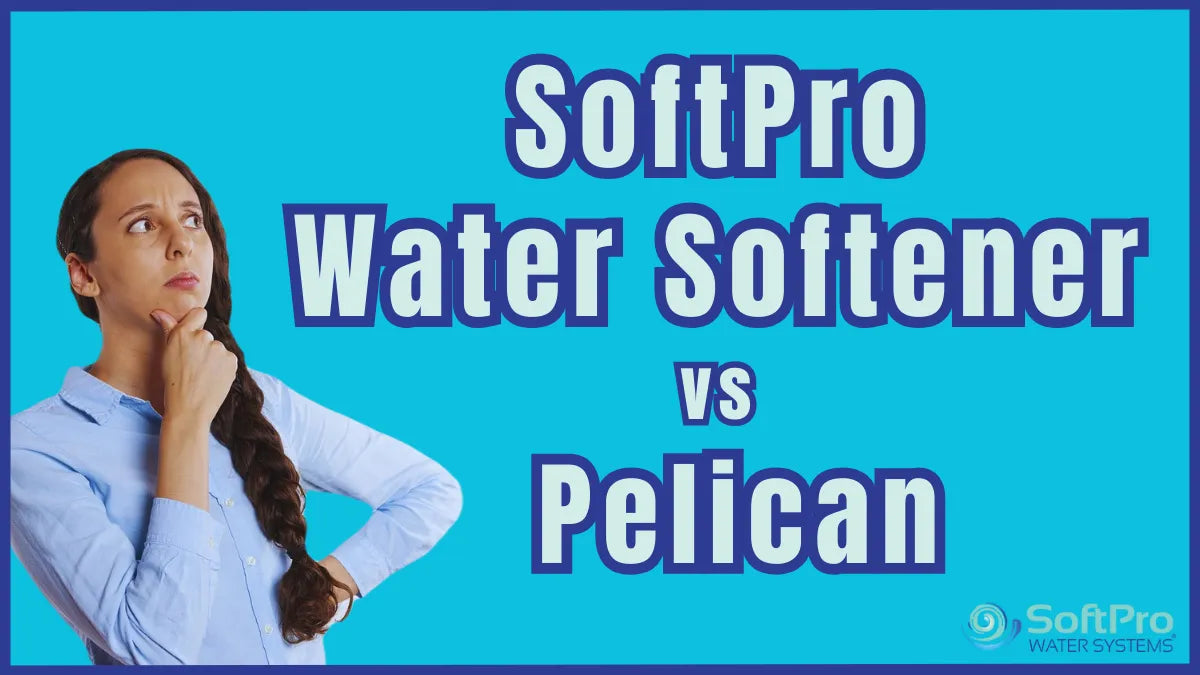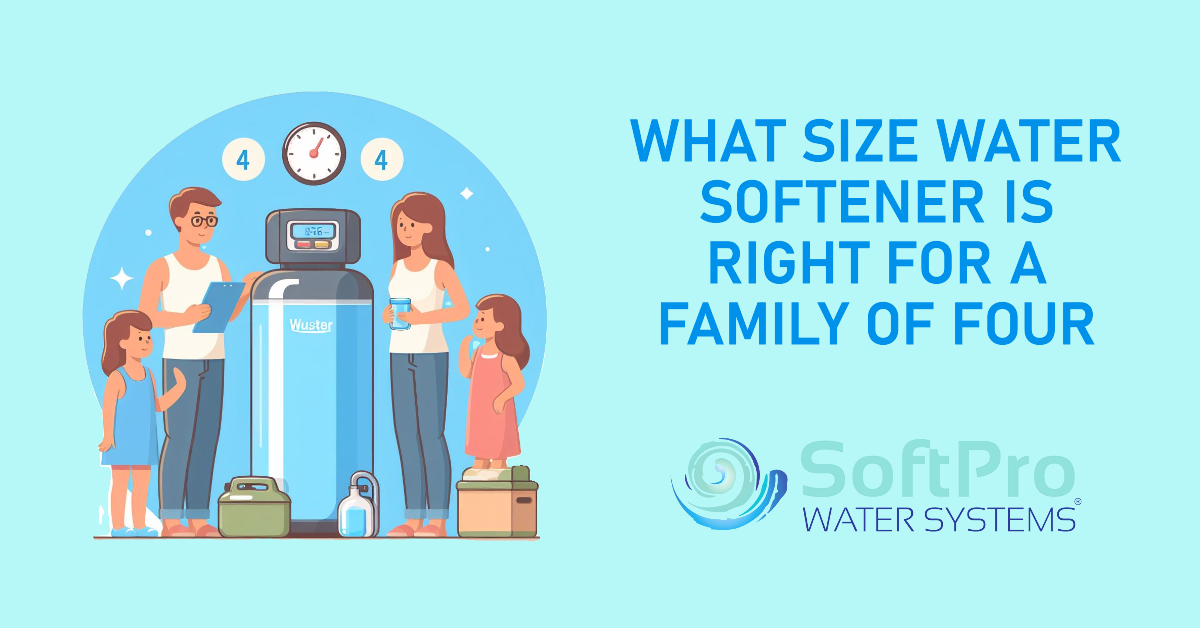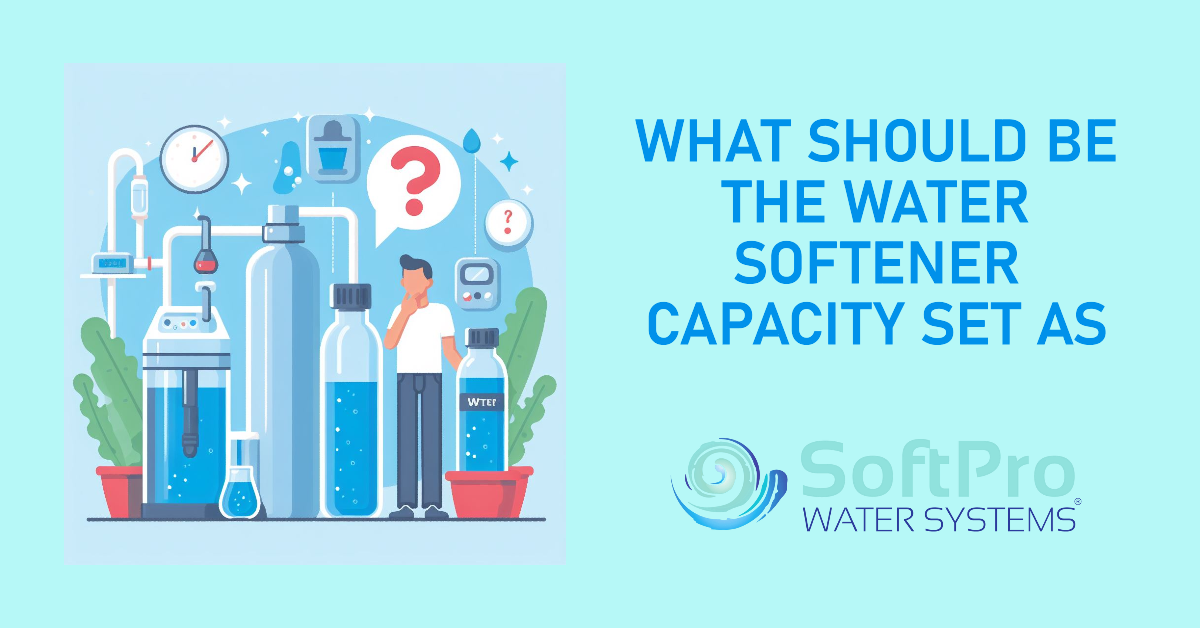SoftPro vs Pelican Water Systems : Performance, Features, Cost, Maintenance Comparison
Table of Contents
Understanding Hard Water and the Need for Water Softening
What are the signs and consequences of hard water?
Hard water, characterized by high levels of dissolved minerals like calcium and magnesium, can wreak havoc on your home and daily routines. Telltale signs include:
- Scale buildup: White, crusty deposits on faucets, appliances, and dishes, making them difficult to clean and reducing their efficiency.
- Soap scum: Lathering issues in showers and sinks due to the inability of soap to bind with mineral ions.
- Stiff and faded clothes: Hard water can leave your laundry feeling rough and dull due to mineral residue clinging to the fabric.
- Dry and itchy skin: Showering in hard water can strip natural oils from your skin, leading to dryness and irritation.
- Plumbing problems: Clogged pipes, malfunctioning appliances, and increased repair costs can be consequences of mineral buildup in your plumbing system.
How does hard water affect water taste, appearance, and lathering?
Hard water often has a slightly metallic or salty taste due to the presence of minerals. It can also appear cloudy or discolored, especially when heated. Lathering issues arise because soap molecules react with mineral ions, forming insoluble scum instead of suds.
What are the common plumbing and appliance issues caused by hard water?
Mineral deposits can clog pipes, reducing water flow and pressure. This can lead to leaky faucets, malfunctioning appliances like dishwashers and washing machines, and even premature appliance failure.
How does hard water impact skin and hair health?
The harsh minerals in hard water can strip natural oils from your skin and hair, leaving them feeling dry and irritated. This can worsen existing conditions like eczema or psoriasis and make your hair brittle and difficult to manage.
What is water softening and how does it work?
Water softening is a process that removes hardness minerals from your water supply. This typically involves passing the water through a tank containing ion exchange resin. The resin attracts and binds calcium and magnesium ions, replacing them with harmless sodium or potassium ions. This softened water is then delivered throughout your home, providing numerous benefits.
What are the different types of water softeners (salt-based, salt-free)?
- Salt-based water softeners: These are the most common type and utilize salt (sodium chloride) to regenerate the resin bed. They are generally more effective in removing hardness minerals but require regular salt refilling and generate brine wastewater.
- Salt-free water softeners: These use alternative technologies like template resin or chelation to reduce hardness. While they don't require salt, their effectiveness can vary depending on the water hardness level and may require more frequent regeneration.
How does the ion exchange process remove minerals from hard water?
As water flows through the resin tank, hardness minerals like calcium and magnesium are attracted to the negatively charged sites on the resin beads. These ions displace sodium or potassium ions, which are released back into the water. This process replaces the hardness minerals with harmless ions, resulting in softened water.
What are the benefits of using a water softener in your home?
- Improved appliance performance: Soft water extends the lifespan and improves the efficiency of your appliances by preventing scale buildup and reducing wear and tear.
- Enhanced cleaning: Soap and detergents work more effectively with soft water, leading to cleaner dishes, clothes, and surfaces.
- Softer skin and hair: Soft water is gentler on your skin and hair, leaving them feeling smoother, healthier, and less irritated.
- Reduced plumbing problems: By preventing mineral buildup, water softeners minimize the risk of clogged pipes, leaks, and appliance breakdowns.
Introducing SoftPro and Pelican Water Softeners
A Look at SoftPro Water Softeners
SoftPro water softeners are known for their innovative features and user-friendly design. Their popular models, like the Elite and Premium, boast:
- High grain capacity: Efficiently removes hardness minerals even for larger homes or areas with high water hardness.
- WhisperQuiet technology: Minimizes operating noise, making them ideal for near living spaces.
- SmartTouch control panel: Offers easy programming, monitoring, and diagnostics through a user-friendly interface.
- Leak detection system: Provides peace of mind by alerting you to potential leaks before they cause significant damage.
- Wide range of configurations: Available in various sizes and capacities to suit different needs and budgets.
Understanding Pelican Water Systems
Pelican Water Systems focuses on advanced technology and efficiency. Their EcoSoft and H2O Pro models stand out with:
- Kinetico technology: Utilizes a demand-operated system that regenerates only when necessary, minimizing water and salt usage.
- High-efficiency valves and controls: Further reduce water and energy consumption for environmentally conscious users.
- Durable construction: Built with robust materials and components for long-lasting performance.
- Advanced filtration options: Some models offer additional filtration for sediment, chlorine, and other contaminants.
- Warranty coverage: Pelican offers comprehensive warranties for added peace of mind.
Head-to-Head Comparison: Key Performance Factors
Performance Showdown: Grain Capacity and Efficiency
- Grain capacity: SoftPro generally offers higher grain capacity models, particularly for larger homes or areas with high water hardness. For example, the SoftPro Elite boasts a 64,000-grain capacity, while the Pelican EcoSoft tops out at 48,000 grains.
- Efficiency: Pelican's Kinetico technology shines in efficiency, minimizing water and salt usage by regenerating only when necessary. SoftPro models, while efficient, typically require more frequent regeneration cycles.
Feature Face-Off: Convenience and Functionality
- Smart features: SoftPro takes the lead with its SmartTouch control panel for easy programming, monitoring, and diagnostics. Pelican models offer basic control panels but lack app connectivity or advanced features.
- Unique innovations: SoftPro's WhisperQuiet technology minimizes noise, while Pelican's Kinetico system prioritizes efficiency. Both brands offer leak detection systems for added security.
- Installation and maintenance: Both brands offer user-friendly installation guides and readily available support resources. However, SoftPro's quick-connect hoses and pre-programmed settings may simplify the process for DIY enthusiasts.
Cost and Maintenance: Weighing the Investment
- Upfront cost: SoftPro models tend to be slightly more expensive than comparable Pelican models.
- Salt usage: Pelican's Kinetico technology minimizes salt usage, leading to long-term cost savings. SoftPro models require regular salt refilling, adding to the ongoing expense.
- Electricity consumption: Both brands boast energy-efficient operation, with Pelican potentially edging out SoftPro due to its demand-operated regeneration system.
- Warranty coverage: Both brands offer comprehensive warranties, with Pelican providing slightly longer coverage periods on some models.
Customer Reviews and Expert Opinions: Listening to the Experts
What Do Users Say? A Look at SoftPro and Pelican Reviews
- SoftPro: Users generally praise the brand's high performance, quiet operation, and user-friendly features. However, some mention higher initial cost and occasional issues with the SmartTouch control panel.
- Pelican: Customer reviews often highlight the brand's efficiency, durability, and long-lasting performance. Some users report slightly complex installation and limited smart features compared to SoftPro.
Expert Insights and Industry Comparisons
- Water treatment professionals: Experts commend both brands for their reliability and effectiveness. SoftPro receives praise for its innovative features and user-friendliness, while Pelican's Kinetico technology is recognized for its efficiency and environmental benefits.
- Industry reports and consumer guides: SoftPro often ranks high in user satisfaction and ease-of-use categories, whereas Pelican is recognized for its efficiency and eco-friendly features. Both brands consistently receive high ratings for performance and reliability.
Choosing Based on Your Needs and Priorities
- High performance and grain capacity: SoftPro might be the better choice for larger homes or areas with high water hardness.
- Efficiency and cost-savings: Pelican could be ideal for users prioritizing low water and salt usage.
- Smart features and convenience: SoftPro's SmartTouch panel and pre-programmed settings cater to users who prefer tech-driven solutions.
- Durability and long-term value: Pelican's robust construction and extended warranties offer peace of mind for long-term ownership.
Matching Your Needs with the Ideal Water Softener
Choosing between SoftPro and Pelican ultimately depends on your specific needs and priorities. Consider factors like water hardness level, budget, desired features, and technological preferences. Researching user reviews, expert opinions, and comparing model specifications can help you make an informed decision. Both brands offer high-quality water softeners that can significantly improve your water quality and home comfort. Remember, the ideal choice is the one that best aligns with your specific requirements and preferences.
You can also read more articles about SoftPro compared to other brands, including SoftPro vs On The Go and SoftPro vs RKIN.




![SoftPro Chlorine+ Carbon Whole House Water Filter to Remove PFAS, Chlorine, Chloramine & Pesticides [City Water Filters Series]](http://www.softprowatersystems.com/cdn/shop/products/softpro-whole-house-chlorine-filter-282008.jpg?v=1758858973&width=140)
![SoftPro Iron Filter - Iron Master AIO - Best Iron Filter for Well Water [Air Injected Water Filter / Katalox]](http://www.softprowatersystems.com/cdn/shop/products/softpro-iron-master-aio-water-filtration-system-remove-iron-sulfur-manganese-using-air-injection-for-optimal-performance-412868.jpg?v=1758859831&width=140)













